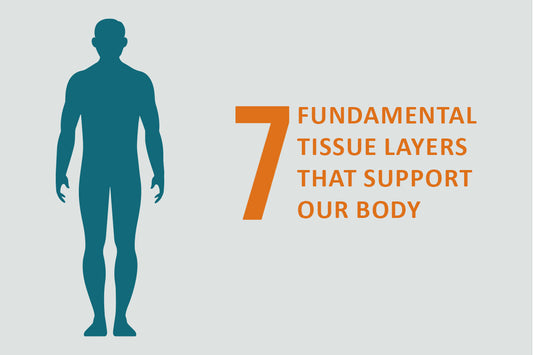Hormones are chemicals that regulate nearly every function in our bodies, from metabolism to mood. But what many people may not realize is how closely linked hormones are to mental health. If you've ever experienced mood swings, feelings of anxiety, or changes in your mental state, it might be tied to your hormonal balance. Understanding this connection between hormones and mental health can help shed light on why we feel the way we do and how our bodies influence our minds.
How Hormones Affect Mental Health
Hormones act as messengers, traveling through the circulatio to organs and tissues, influencing various bodily processes. Among these processes is the regulation of our emotions and mental state. When hormone levels fluctuate, it can directly impact our mental well-being, sometimes leading to mental health issues like mood disorders, anxiety, and even depression. Hormonal imbalances can play a significant role in how we feel mentally and emotionally, making it important to understand the impact of these vital chemicals.
The Stress Hormone: Cortisol
One of the most well-known hormones linked to mental health is cortisol, commonly referred to as the "stress hormone." Produced by the adrenal glands, cortisol plays a key role in our body's stress response. When we're under stress, cortisol levels rise to help the body respond appropriately. However, when cortisol levels remain elevated for extended periods, it can affect our mood and mental health.
Chronic high levels of cortisol have been associated with feelings of anxiety, irritability, and even mental fatigue. Understanding this connection is crucial because it highlights how prolonged stress can affect mental well-being beyond the usual everyday pressures.
Thyroid Hormones and Mental Health
The thyroid gland, located in the neck, produces hormones that regulate metabolism, energy levels, and overall mood. Thyroid hormones, especially triiodothyronine (T3) and thyroxine (T4), play an essential role in brain function. When the thyroid gland produces too much or too little of these hormones, it can lead to hormonal imbalances that may affect mental health.
For example, low thyroid hormone levels can contribute to mental health challenges like fatigue, mood swings, and difficulty concentrating. Conversely, high levels can cause restlessness, anxiety, and mood instability. Maintaining balanced thyroid hormone levels is key to supporting mental well-being and helping ease mental discomforts.
Estrogen and Progesterone: The Female Hormones
Estrogen and progesterone are two primary female hormones that significantly impact mental health, particularly in women. These hormones fluctuate throughout life due to menstrual cycles, pregnancy, and menopause, often leading to mood swings and mental health changes.
Estrogen, for example, has a direct impact on serotonin, a neurotransmitter that helps maintain mood stability. When estrogen levels drop, such as during menopause, women may experience increased anxiety, mood swings, or depression. Similarly, progesterone plays a role in calming the nervous system, and its fluctuations can lead to feelings of unease and mood changes.
Hormonal Imbalances and Mental Health
Hormonal imbalances occur when there is too much or too little of a particular hormone in the body. These imbalances can have profound effects on mental health. For instance, imbalances in estrogen, progesterone, or thyroid hormones can contribute to mood disorders, depression, and anxiety.
Factors such as diet, lifestyle, stress, and genetics can all impact hormone levels, potentially leading to imbalances that affect mental health. Addressing these hormonal issues involves understanding the root cause, which often requires a comprehensive approach that includes lifestyle changes, medical support, and mental health care.
The Role of Serotonin and Other Neurotransmitters
Hormones don't work alone; they often interact with neurotransmitters, the brain's chemical messengers. Serotonin, dopamine, and norepinephrine are neurotransmitters that regulate mood and mental states, and they can be influenced by hormonal changes. For example, low estrogen levels can affect serotonin production, leading to feelings of sadness or anxiety.
This interconnectedness shows that mental health issues are rarely just a matter of psychology; they often have a biological component that includes hormone levels and neurotransmitter activity. Understanding these connections can help individuals make sense of their mood swings and other emotional experiences.
Managing Hormonal Changes and Mental Health
Navigating the connection between hormones and mental health involves recognizing the signs of hormonal imbalances and seeking appropriate support. Simple lifestyle adjustments, such as maintaining a balanced diet, regular exercise, and stress management techniques, can help maintain hormonal balance. Monitoring how you feel during different phases of your life or monthly cycles can also provide insight into how hormones are affecting your mental state.
For those experiencing significant mood changes, consulting healthcare professionals who specialize in hormonal health can be an important step in managing mental health. Identifying hormonal imbalances through tests and exploring suitable treatments can help maintain better mental and emotional well-being.
Conclusion
Hormones play an undeniable role in mental health, influencing everything from mood swings to more persistent feelings of anxiety and discomfort. By understanding the relationship between hormones and mental health, individuals can take proactive steps to recognize potential hormonal imbalances and explore ways to maintain emotional balance. Hormones may be the unseen drivers of how we feel, but with the right knowledge and approach, managing their impact on our mental health is within reach.
This holistic view of mental health reminds us that our emotions are not just about what happens in our minds but are deeply connected to the intricate workings of our bodies. Recognizing the link between hormones and mental health can be a powerful step toward overall well-being and a balanced life.






